Caught in the crossfire: Chinese-Americans feel the heat as tensions flare
A new level of China-bashing is on the rise in Washington, and scholars say it is fuelling anti-Chinese sentiment and paranoia in the United States
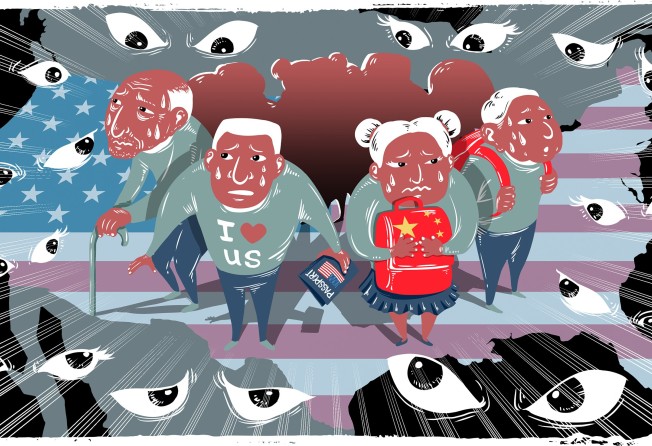
With tensions flaring between Washington and Beijing over their spiralling trade war, Chinese in the United States – both visiting nationals and Americans of Chinese descent – fear they might become collateral damage if they are considered a threat to national security.
Many prominent Chinese-Americans have complained that they are subject to tighter scrutiny as a result of the tit-for-tat trade confrontation and mounting allegations about Beijing’s overseas influence activities that have unfairly called their loyalty into question.
“Chinese-Americans are vulnerable and we are caught in the middle,” said Chi Wang, chairman of the Washington-based US-China Policy Foundation.
Wang, a professor at Georgetown University and the former head of the China section at the Library of Congress, said it was sad to see his “Chineseness” used to somehow make him less American or less trustworthy.
“The US is my home. I have lived in the US for more than 70 years and worked for the US government for 50 years before retiring – and yet I am beginning to feel unwelcome here,” said Wang, 86, who moved to the US soon before the founding of the People’s Republic of China in 1949.
A ‘DETERIORATING RELATIONSHIP’
Neither the US nor China has shown signs of yielding in their trade war so far. US President Donald Trump continues to double down on his tough talk – accusing Beijing of election meddling and last week slapping tariffs on another US$200 billion of Chinese goods, nearly half of the imports from China – while Beijing has lambasted Trump’s adversarial approach as part of a long-term Washington attempt to thwart China’s rise.
And a top Chinese leader has called on ethnic Chinese, including citizens of other nations, to support Beijing’s “greater national interests” and President Xi Jinping’s “Chinese dream” of national rejuvenation.
That appeal by Zhao Leji, the Communist Party’s top personnel chief, at a meeting on August 29 Xi attended, could hardly have come at a more delicate time.
A congressional report by the US-China Economic and Security Review Commission last month detailed the party’s covert influence operations in the US, including efforts to squelch dissent abroad and what the commission termed the infiltration of top American think tanks by financing research projects.
This is not the first time that lawmakers in the US, European Union and several other countries, including Australia and New Zealand, have accused the Chinese government of conducting aggressive campaigns to influence Western political elites, academia, think tanks and media.
In the most recent move by the US, the Department of Justice last week ordered two leading Chinese state-owned media outlets – the Xinhua News Agency and China Global Television Network (CGTN), the English-language arm of state broadcaster CCTV – to register as foreign agents under the Foreign Agents Registration Act (FARA).
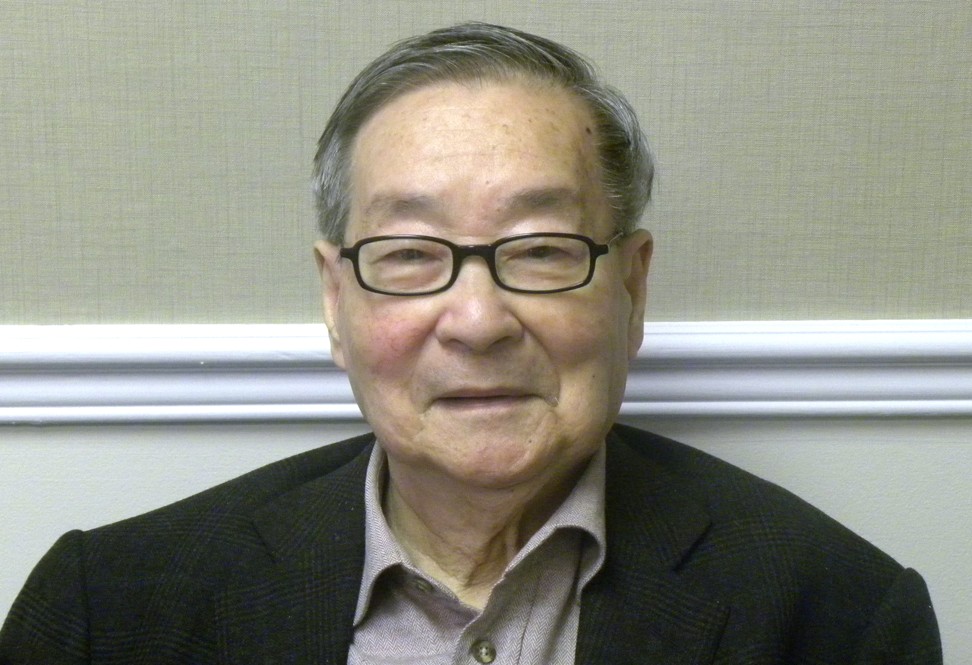
Congress has also taken up the issue. In March, Republican senators Marco Rubio of Florida and Tom Cotton of Arkansas along with several members of the House of Representatives introduced two bills to combat foreign propaganda and other influence activities, which would require organisations, including Confucius Institutes, to register under FARA.
Such highly charged allegations have already stoked fears among Americans and cast a dark and dubious shadow over official and academic exchanges between the two countries and hundreds of thousands of Chinese students who are studying in the US.
“The deteriorating relationship is a cause for concern for everyone. The trade war has made the livelihoods of Chinese-Americans more difficult,” said Frank Wu, president of the Committee of 100, a US-based group of influential Chinese-Americans.
Wu, the former dean at the University of California Hastings College of the Law, said that Chinese-Americans have often faced the repeated question of “where are you really from” and have endured the “perpetual foreigner” syndrome in the US.
“Increasingly for Americans of Chinese descent, people want to know which side you are on,” Wu, himself Chinese-American, said. “If you say I’m an American, people don’t believe you. Even if you’re born in America, even if your family has been here for generations, people look at you and think you must be a foreign agent or a spy or you’re up to no good.
“‘How do we know in your heart you truly are an American?’ There are questions, doubts and scepticism towards Chinese-Americans and increasingly they have to prove themselves,” he said.
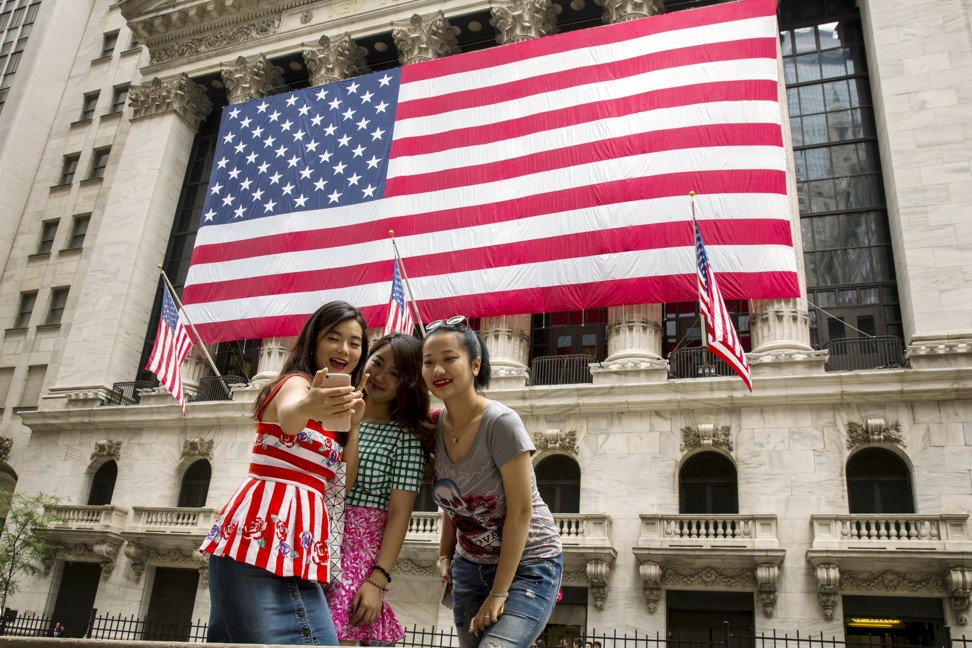
Yun Sun, East Asia Programme senior associate at the Washington-based Stimson Centre, said that the Trump administration had chosen to zero in on threats from a rising China, including its influence operations in the US.
“The US seems to have a policy that is at least sceptical or suspicious of all ethnic Chinese, whether you’re originally from China, or Chinese nationals living in the US or Chinese students,” Sun said.
A recent poll by the Pew Research Centre indicated that fewer than four in 10 Americans regarded China favourably, confirming a consistent trend of negative views about China in the US over the past decade.
The survey was conducted in May and June, as the Trump administration was talking up a trade war, but before it began in earnest in July, when the Trump administration’s first punitive tariffs were affixed to US$34 billion worth of Chinese imports.
The poll was primarily focused on trade tensions between the two countries and did not include specific questions about China’s purported influence operations, which Sun said could be even more damaging to American perception concerning China.
“We are certainly seeing an unprecedented level of contention and friction in US-China relations. It is not just quantitatively higher, but also qualitatively different. A full confrontation on all fronts like the US and the USSR had during the cold war is not yet there, but it is definitely evolving in that direction,” she said.
A HISTORY OF SUSPICION
A study by the Committee of 100 last year found that Asians, and Chinese in particular, were most likely to be charged for economic espionage in the US. The study reviewed 136 cases involving 187 individuals between 1997 and 2015.
Moreover, the study found, since 2009, the percentage of Chinese-Americans charged for economic espionage has tripled.
Indeed, for nearly two decades, US prosecutions for espionage and related activities have featured several high-profile cases involving Asian-Americans. And while many have resulted in convictions, some have proven to be false or baseless.
In the most notorious case, the physicist Wen Ho Lee, a Taiwanese-American, was indicted in December 1999 on charges that he had stolen secrets about the US nuclear arsenal for China. The government was ultimately only able to charge Lee with improper handling of restricted data, one of 59 original counts.
Lee pleaded guilty to that single count, and in 2006 received US$1.6 million from the federal government and five media organisations as part of a settlement of a civil suit.
More recently were the cases of physicist Xiaoxing Xi and hydrologist Sherry Chen Xiafen, both naturalised US citizens who were accused of being Chinese spies but later proved innocent, and are widely regarded by Chinese-Americans as victims of racial profiling.
Xi, a physics professor at Temple University in Philadelphia, was arrested in May 2015 on charges of the theft of sensitive technology for China. He was cleared of spying charges in September 2015 before a trial.
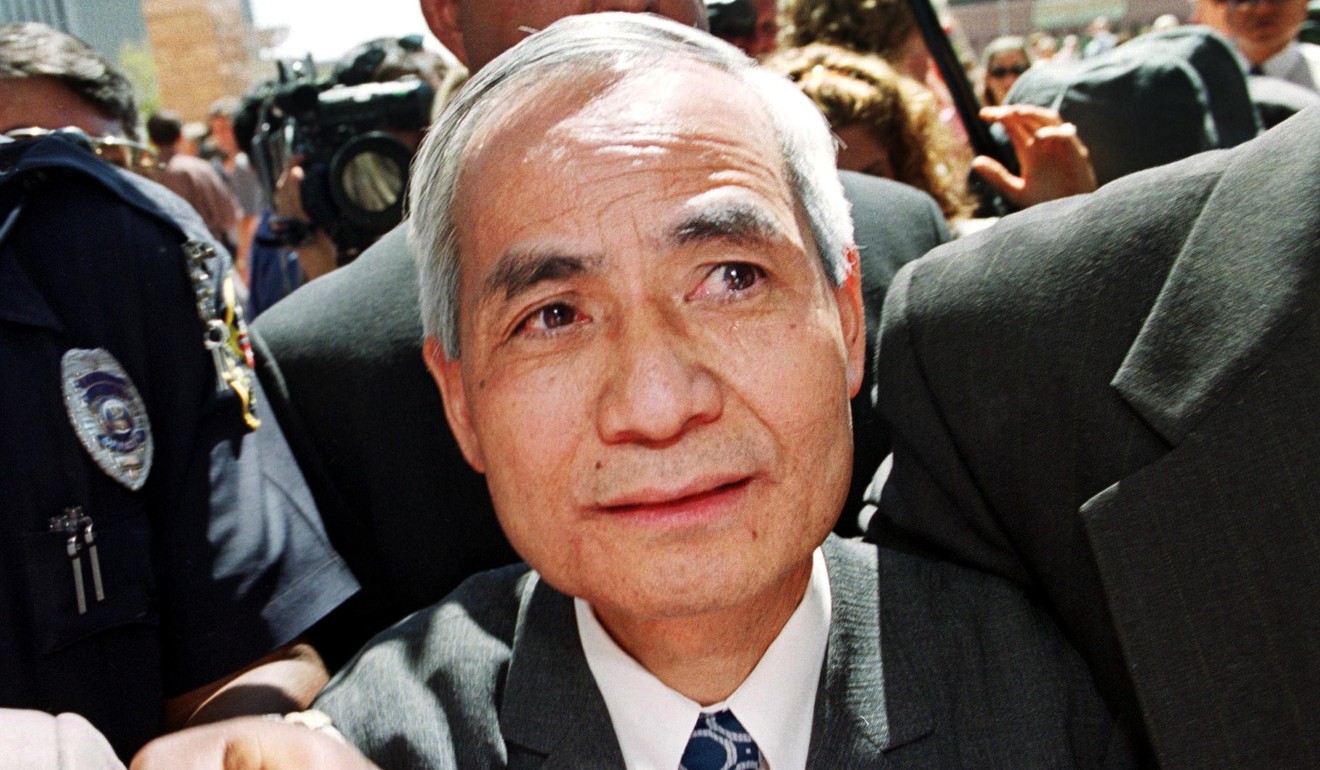
Chen, a hydrologist at the National Weather Service in Ohio, was arrested in October 2014 on charges that she passed information about US dams to a Chinese official.
She was exonerated five months later but was fired by the Commerce Department, which operates the service. She has yet to get her job back even though a federal judge ruled in April that she be reinstated with back pay and called her a victim of a “gross injustice”.
Last year, Chunzai Wang, one of the world’s leading experts on climate change, ocean-atmosphere interaction, and hurricanes, was arrested after a trip to China and charged with eight felony counts, according to court documents.
Wang, a naturalised US citizen who worked with the National Oceanic and Atmospheric Administration, was accused of accepting payments from Chinese organisations for helping students with their climate research.
In a deal with federal prosecutors, Wang pleaded guilty to one count of illegally supplementing his government salary with money received from the Changjiang Scholars Programme, which is overseen by China’s Ministry of Education.
In February, Federal Judge Cecilia Altonaga of the Southern District of Florida sentenced him to a single night in jail. The judge also questioned the idea of prosecuting Wang, noting that her only regret “is that I have to adjudicate” his case.
The lawyer for Wang, Peter Zeidenberg, who had also represented Chen and Xi, said in a statement: “Dr Wang was unfairly targeted and victimised by his own government, a fact recognised by the judge in his case. He is collateral damage in the United States government's campaign against Chinese-American scientists.”
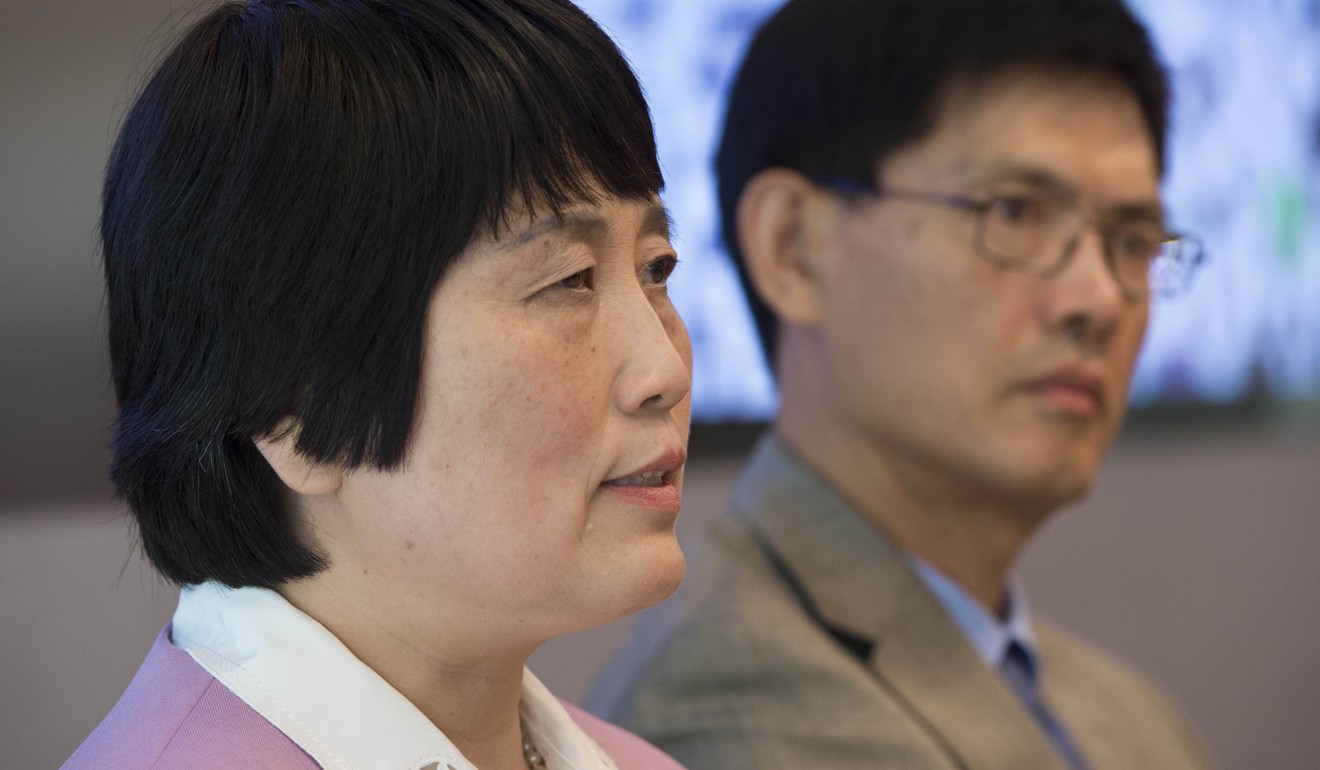
SCEPTICAL ABOUT STUDENTS
As relations between China and the US enter a period of new-found hostility, a new degree of China-bashing – advocating a hawkish and adversarial approach towards Beijing – is on the rise in Washington. Ethnic Chinese, especially students and scholars, have become an easy target.
In February, Christopher Wray, director of the Federal Bureau of Investigation, told a Senate Intelligence Committee hearing that spying by Chinese scholars, scientists and students in the US constituted a “whole-of-society threat” that would require “a whole-of-society response”.
And just last month, according to Politico, Trump said at a private event that almost every Chinese student at American colleges is a spy.
Robert Daly, director of the Wilson Centre’s Kissinger Institute on China and the US, expressed sympathy for Chinese nationals studying and working in the US, but noted that they are at least partly a consequence of China’s influence campaign, led by the Communist Party’s United Front Work Department.
“While some accusations are overblown or lack context, what we know about the goals and methods of the Chinese Communist Party make heightened vigilance essential,” he said. “Now that China is wealthy and has an aggressive foreign policy, these programmes are viewed outside China as potentially more consequential.”
Daly said that Washington should tread carefully when dealing with the more than 350,000 Chinese students estimated to be attending US universities.
“There’s little doubt that America’s academic openness has been vastly more helpful than harmful to the US since Chinese students started coming here in large numbers in the 1980s. The work of these students and the American colleges and universities that fostered their talents should be celebrated,” he said.
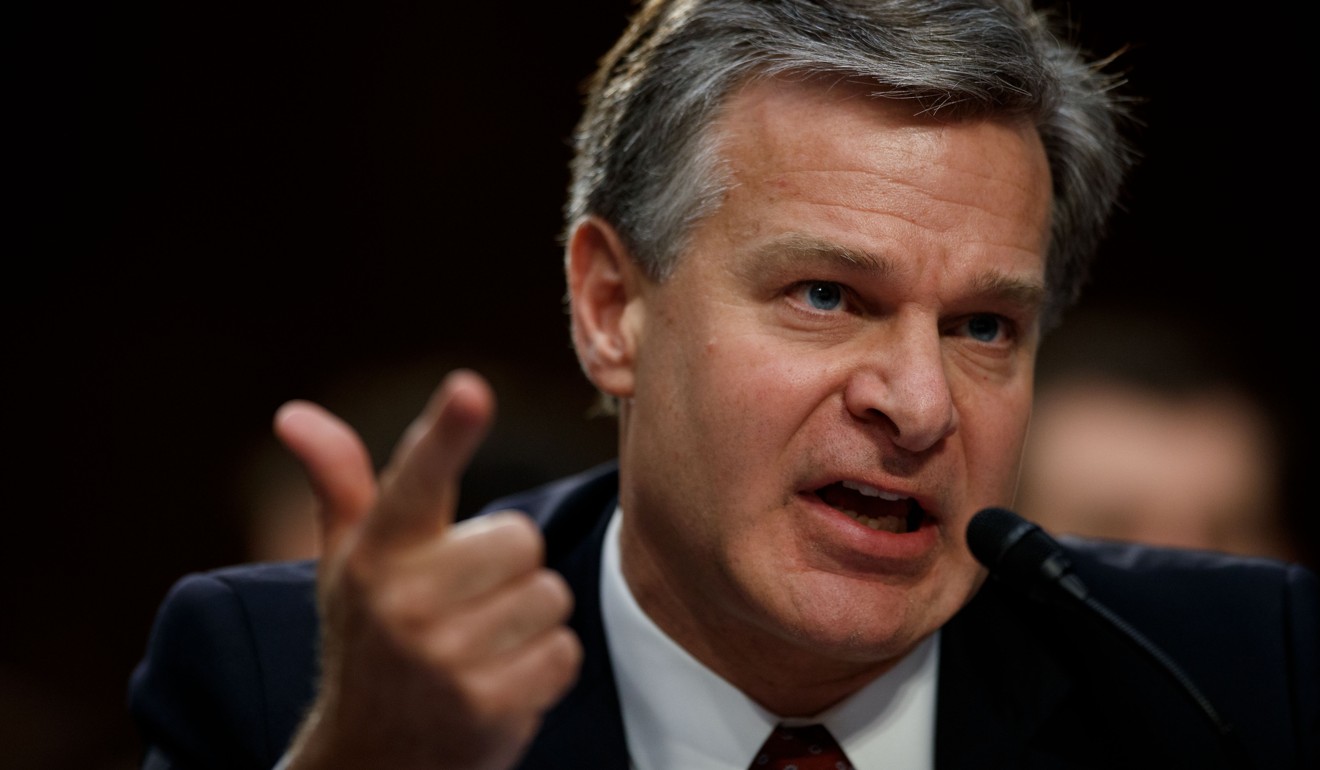
Orville Schell, the director of the Centre on US-China Relations at the Asia Society in New York, also noted that China’s forceful campaign had stoked suspicions about visiting academics. “It is China’s United Front Work Department which views overseas Chinese as sons of the yellow emperors, ethnic Chinese somehow belong to China. Overseas Chinese are caught in the crossfire.”
Schell said he was working with a group of about 20 prominent China specialists in the US on a broad-ranging research project about China’s influence operations.
“The effect on American think tanks so far has been limited, but as Chinese philanthropy and Chinese money seek to support universities, think tanks, civil society and NGOs, there will be more influence. There is clearly some interference in our internal affairs, which is not helpful,” he said.
THE CHINESE INFLUENCE CAMPAIGN
Daly also blamed Xi and Chinese officials who painted a target on the backs of the Chinese-Americans with their frequent calls on all Chinese of the diaspora to help build the “rejuvenation of the great Chinese nation”.
According to Schell and Daly, Beijing has markedly increased funding for the United Front organisations that sought to rally support for Xi and the party, foster uncritical attitudes towards China while silencing international critics.
“It is not surprising that Beijing would pursue these goals, and the effort isn’t new, but the current campaigns are better funded and more brazenly so,” Daly said.
Noting that official China policies and programmes raise genuine security concerns, Daly said: “How would Beijing respond if Trump summoned American students and faculty in China to contribute to the ‘Free and Open Indo-Pacific’? Beijing’s rhetoric and, yes, some of its overt and covert programmes, contribute greatly to the perception that Chinese scholars in the US may threaten American security.”
But many China scholars agreed that hawkish views of China in the US Congress and within the Trump administration, which has depicted Beijing as a major economic and security threat, have played an important role in fuelling what they call a rising anti-Chinese sentiment and public paranoia against ethnic Chinese.
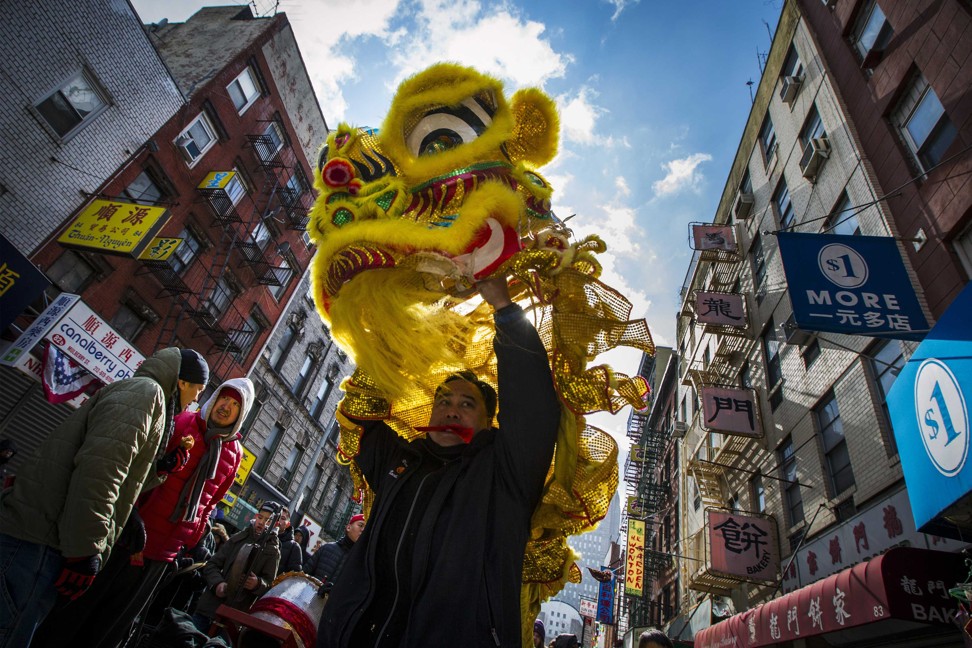
In an interview with MSNBC in June, US Secretary of State Mike Pompeo said that alongside Russia, China posed “the most serious threat” to US national interests.
Michael Collins, deputy assistant director of the CIA’s East Asia Mission Centre, was even more blunt during a security forum in July, portraying China’s influence operations as a new cold war that Xi is waging against the US.
“There is a xenophobic side to the Trump administration, and it is not all about Chinese,” said Steve Tsang, a political scientist and director of the SOAS China Institute in London.
Tsang said that both Trump and Xi were responsible for the unease Chinese-Americans are feeling.
“Individual spy cases causing wider concern is not just because of the rise of the xenophobic subcurrent. It is also because people believe that the wider context makes such generalisation not completely ridiculous and indefensible,” he said.
“For this, Chinese policy is partly responsible – if the Chinese government requires all people of Chinese descent to owe loyalty to ‘mother China’, it gives a basis for some people in the US or elsewhere to cast doubt on the loyalty of their fellow nationals of Chinese origins,” he said.
A REPORT ‘FEEDS PARANOIA’
Gal Luft, co-director of the Institute for the Analysis of Global Security, a Washington-based think tank, was fiercely critical of the latest congressional report, which contended that China was trying to infiltrate American think tanks, including the Brookings Institution, the Centre for Strategic and International Studies and the Carnegie Endowment for International Peace.
Requests by the South China Morning Post for comment from those institutions went unanswered.
“It makes bold claims about alleged Chinese influence on think tanks but does not provide a shred of evidence or source to back its claims. Of the 39 pages of the report only one page talks about Chinese activities in the US,” Luft said. “It is part of an entire campaign to feed paranoia about Chinese influence when in fact there is very little evidence to support its claims.”
Daly cautioned against overstating China’s threat, especially any influence operations.
“As long as American communities, institutions, and local governments are well informed about the Communist Party’s methods, and as long as the US sticks to its core values of openness, diversity, and free expression, they needn’t fear China’s efforts much, no matter how well funded they are,” he said.